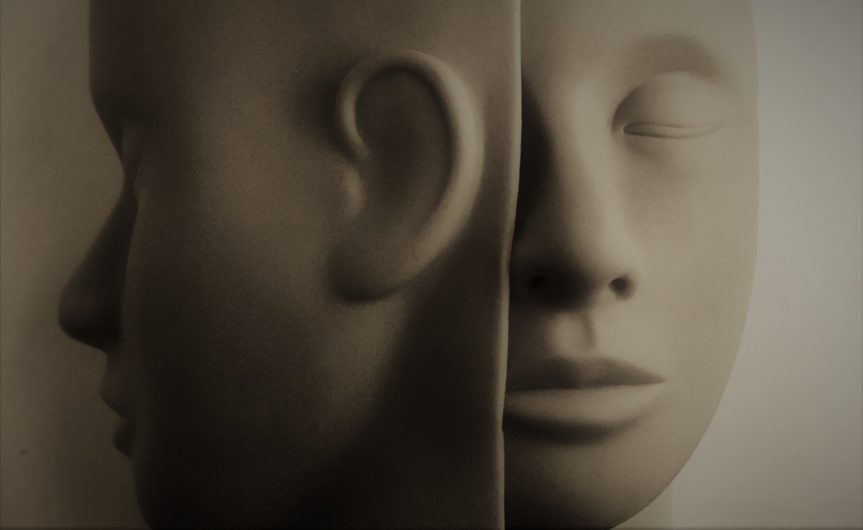Photo by Adam Parrott/Flickr
By Matt Jones
This is a couples’ vacation. Just the four of us.
In New Orleans.
In August.
The drive coming from Tuscaloosa should only take four and a half hours, but Jess and I are arguing because she thinks she forgot her birth control back at the house. Forgot is the wrong word, though. The problem is that I rush her. This is my thing when we travel: I hurry her out of the house at a speed beyond her comfort level. I pace up and down the hall and stand hawkishly over her shoulder wondering just what on earth could be taking so long.
She tells me that procrastination is her form of rebellion. She discovered this through self-motivated psychoanalysis, by reflecting upon memory after memory of family road trips in which her father woke her when it was still dark out and insisted they be on the road before the sun was up. Now, at twenty-seven, she says she dawdles as a form of dissent. Ambles in revolt. Climbing into the car and then needing to get out to use the bathroom just one more time is all part of the revolution.
We’re halfway to Louisiana, coming up on Hattiesburg, Mississippi, when I pull off the highway into an empty truck stop and Jess rummages through our luggage.
“It’s not here,” she calls, annoyed, from the back of the car.
“You forgot it?”
“You rushed me,” she says.
We’re in love. This is not in question. What is, however, is whether or not we want to risk bringing a child into the world. The risk is small, of course, but Jess and I are in our last year of graduate school. We have many reservations, so on the side of the road in southern Mississippi, we do the math.
- We had sex the night before.
- She didn’t take her birth control then.
- It’s August, more precisely, mid-August. If she were to get pregnant, then the baby would gestate for nine months inside her body and enter the world in June.
“We’ll have our degrees by then,” I say.
“But no jobs,” she says.
We both nod.
We’ve talked about children many times before this. We love the freedom of just each other. We’re worried about the state of the world, about the climate, rising seas, violent conflicts. Our general consensus is that we will not procreate intentionally, though this, in the here and now of rural Mississippi, would be one of those unintentional times.
“Would you hate it if we drove back to the house to get it?”
“No,” I say.
“What if we just drive home and don’t go? Would that be so bad?”
I smile. We are both iffy when it comes to couple’s vacations. They’re traumatic. The only other one we’ve been on together took place three years earlier on Lookout Mountain in the Northeastern reaches of Alabama where Jess shared a room with her then-husband, and my then-girlfriend and I took the bedroom upstairs. At one point during a long night in which the University of Alabama football team barely eked out a win over LSU, we all took our clothes off and climbed into a hot tub that faced a sea of moonlit pines.
The thing about being in love with a married woman is that you can never rush her. There is so much waiting involved. So much patience. If I perform that same level of self-motivated psychoanalysis on myself that Jess is so adept at, then I determine that this is why I rush her out of the house now. I’m sick of waiting. I have waited. I was patient. I don’t like to think about the first couples’ trip we took, when Jess was married to someone else, though there is a moment from that night after her husband and my girlfriend stumbled out of the hot tub and back into the house when Jess reached her bare foot through the water and parted my knees and then we just sat there staring at each other through the steam while sweat gathered on the back of my neck.
And so now, sitting on the side of the road in Mississippi trying to decide whether or not we are okay with having a child in nine months, it’s best not to hurry important decisions. Take it slow. Painfully slow if necessary. Turn the car around. Drive back. Pick up the birth control. Turn a four-and-a-half-hour car ride into ten. When she parts your knees in the dead of night, don’t move. Don’t even breathe. Just be still and know there is still yet a great distance to travel before you arrive anywhere.
•••
We meet Rex and Kelly in New Orleans. Rex is a friend of mine from college and Kelly is his girlfriend. For my birthday, Rex has rented us a duplex in the lower ninth. Down the street, there’s an urban kale farm and chickens running loose and houses with the letter X still spray-painted across the siding.
On our first morning, Rex and I walk through sticky heat to the nearest coffeeshop and he tells me about wanting to become a firefighter. The year before it is a muay thai fighter and a year later it will be a carpenter, but for now it’s a firefighter.
He’s in the midst of crisis of masculinity. I suspect he doesn’t love Kelly, and if he does, it is a love I am unfamiliar with. For as long as I have known him, Rex has tried to exhibit the calm coolness of James Dean or maybe even a young Steve McQueen or Robert Mitchum and he can often manage the performance for a short amount of time. But then he cracks. The cracking is inevitable. I expect this trip of ours is built upon the foundation of a crack.
Over the years I’ve determined that it doesn’t matter if I am conciliatory or confrontational—either way, Rex will do what Rex does—so once we get to the coffeeshop, I just come right out and ask, “So you’re not applying to graduate school?”
And here we go with the firefighter talk again. Rex has spent the last six months telling me over the phone in hushed tones while Kelly is in the other room that he is going to pursue a graduate degree, that he is going to devote his energies to writing. At the coffee shop, we pick up drinks for “the girls.” Already, I don’t like this, this couples’ trip lingo of “girls” and “guys.” There’s too much performativity involved in the couple’s trip. There are the things Rex reveals to me man-to-man and then there is the man he reveals in the company of “the girls,” and I think why must we have these moments of tenderness and intimacy followed by such emphatic exaggeration and denial and deflection? Don’t you know I can’t handle this kind of dynamic? Don’t you know I have couples’ vacation trauma? But of course he doesn’t.
Rex tells me that becoming a fireman will put him on the sure path to a nice home, a better body, kids, a family, a red Corvette.
“A red Corvette?” I say. “Who are you, my uncle?”
He tells me firemen have a lot of downtime to do bench press in front of the firehouse.
I nod. My shirt sticks to my body. The coffee is too hot. Just holding the cup makes my hand sweat. I wait for Rex to ask about my life. Not just a question meant to segue into something he is dying to talk about, but a real inquiry into the quality of my being. It won’t come. That is fine. I’m practiced in the art of waiting and nodding along.
Our conversation reminds of talking to Jess’s husband, how the morning after the hot tub, he and I drove down the mountain and into town to buy breakfast and he said, “Jess doesn’t really know what she wants. She likes to think she does sometimes. Things will get better once we leave Alabama. Once we go somewhere else.”
Nod, nod. Right, right.
When I first met Jess’s husband, he said we should open up a mobile dog grooming studio together. He said maybe he’d go to law school. When I first met Jess she told me, “He said things would get better when we came to Alabama.”
Sometimes I want to grab Rex by the scruff of his shirt and slap him. The world is full of violent conflict anyway. What is all this firefighter business? This obsession with muay thai? I thought you were trying to write? I know the answer, of course. I suspect Rex does too. I think he knows, but he won’t say. Can’t relationships go on forever in the cramped space of what is known but goes unsaid? Who wants to live in that space? I could never go back there, back in that incommodious box. Neither could Jess. We have spent countless hours talking about that space. For her, it was a marriage, for me an affair, a long weekend in a North Alabama rental cabin.
“I think I could get a lot of writing done at the firehouse. They’ve got a lot of downtime, firefighters.”
“Good, good,” I say. I am conciliatory in the heat of August. I don’t have the energy for argument. I haven’t had a sip of my coffee yet. I’m spent from the ten-hour drive that should have only been four and a half.
When we get back to the house we’ve rented for the weekend, Rex pushes open the front door and says, “Let’s see what the girls are up to.”
They’re in the kitchen sitting across from each other at a small table beneath a spice rack. The whole trip is deja vu already. I think of the cabin just outside of Fort Payne, Alabama. Lookout Mountain. The changing of the November leaves. Of my then-girlfriend and Jess sitting there talking to each other while me and her husband unload groceries. All of us together in this incommodious box.
In New Orleans, I’m only happy that there’s no hot tub. There is no need for one. The duplex itself is feverish, built shotgun style so there the four of us will stay trapped in the barrel for two whole days.
•••
Late afternoon we all head over to the French Quarter. Rex and Kelly drink more gin and tonics than I can count. I have never had a beignet but everyone else has and they tell me I’m not missing out on much. So amongst other things, this weekend will also be a beignet-less one. Again, it is fine. I can deal with the lacking.
In our alone time, Jess and I laugh about the birth control incident that took place on the highway. It’s already funny. The two of us in the tight confines of my little hatchback, debating in the span of a few minutes whether or not we want to alter our family planning. We’re good at those kinds of situations. Maybe good is the wrong word. Practiced, though. In my car. In her car. The library stairwell. The graveyard behind the football stadium at midnight. Empty classrooms on the third floor of the English building. The kitchens of rented country cabins while our significant others are asleep down the hall and up the stairs. Give us a cramped space and something impossibly large to discuss and we’ll work it out. We’ll tiptoe around it. We’ll attack it head on. We’ve got a trophy room full of “should I leave my husband,” “do you love me,” “quick describe our future together while he is in the bathroom.” When other couples come over for dinner or drinks, they see the heads on the wall, the furs on the floor. Our house has a kind of enigmatic funk to it.
But then again, whose doesn’t? The New Orleans rental, after a full day of drinking and sweating and stale cigarettes, gets kind of fetid. There’s brooding in the air. Rex is about two drinks past young Steve McQueen and heading into old Marlon Brando territory. And Kelly, you can tell she’s got things on her mind. Things she wants to say. What better way to do it than with a game of Scrabble?
We all sit down at the tiny kitchen table and spread the board out, set ourselves up with a set of seven letters each. I love words, but I don’t care for Scrabble, for the limitations. Back on Lookout Mountain, the four of us played Taboo. Jess was on a team with my girlfriend. Us versus Them. Tensions were high not because anyone cared about winning but because the whole weekend was Taboo. The entire couples’ trip was guessing what someone was trying to say without them actually saying it.
While we play Scrabble, Jess and I lock ankles under the table. I’m in last place and Jess is in third so the real contest is between Rex and Kelly. Rex has always wanted to be a writer. This game means everything to him. I can see it in his eyes. And if it doesn’t mean everything, then it means next to everything, whatever is adjacent to it. And for Kelly, I can tell that winning is important, not winning in its own right, but Rex letting her win. Jess and I tap this out in morse code on each others’ thighs under the table. We are far past words. Masters of secret communication, we are. Of the coy glance. Of the hand brush. We used to text each other in acronyms that all began with the same three letters: RTR. Roll Tide Roll. The rallying cry for the Alabama football team.
RTRIWYSBRN (Roll Tide Roll I Want You So Bad Right Now)
RTRIWTFU (Roll Tide Roll I Want to Fuck You)
RTRIWYIM (Roll Tide Roll I Want You Inside Me)
Rex wins the game. The board is a collage of nonsense we’ve all had a part in creating. Kelly grabs her wine glass and storms off either because she does not like losing or because she does not like Rex winning. Then a literal storm rolls in. Rain patters the tin roof and fills the duplex with white noise. Jess and I climb into bed, and because we are renting a shotgun house, Rex regularly marches through our room and out the front door and onto the porch where he chain smokes.
“What is he doing out there?” Jess asks.
Lightning flashes. We can see Rex’s silhouette. Rain pelts his face and the front half of his body. His hair drips. His cigarette glows. In the shadow of the porch, in the right light that is, he does sort of look like Steve McQueen a la The Towering Inferno, at least a little bit, perched there as he is, exhausted, grim, both drenched and aflame. Yeah, I think, you go on and fight your fires.
•••
On Sunday morning Rex and Kelly are out of money. Out of gas. Jess and I pack our things while Kelly makes calls to her mother’s boyfriend to see if they can have some cash wired over. Until then, they are literally stuck.
I load our things into the car, then we pace awkwardly up and down the sidewalk while Rex and Kelly take turns calling different people, explaining the situation, and snapping at each other.
Jess pulls me off to the side.
“Do you think they want us to give them the money?”
“Maybe,” I say.
Maybe we’re back to the performance. Maybe they’re too embarrassed to ask us directly. They should just ask, though. They should just come right out with it. I have stood in front of Jess on a cloudless night with tears welling in my eyes pleading, “Pick me. Please, pick me.”
In the darkness of my room I have begged her, “Just divorce him. Don’t wait. Just do it.”
In the hot tub on the back porch of a house that didn’t belong to us, I let her part my knees and then just look at me.
I shouldn’t judge Rex and Kelly, but I do. If they need help, I want them just to come right out and say it. But I also understand not being able to.
“You guys can head out,” Rex says. “We’ve got it worked out.”
Nod, nod. Right, right.
So Jess and I climb into the car and pull away. We wave through the window. The rain follows us out of the city but stops by the time we cross Lake Pontchartrain.
Jess says, “You remember Rex last night? Smoking his cigarette in the rain?”
We both laugh.
The drive back doesn’t take long. The road we’re on is well traveled. We’re used to it by now, and before we know it, the weekend is behind us, so too is the storm, the sticky heat, the brooding, the performance, the cramped box. All of that, behind us now.
•••
MATT JONES is a graduate of the University of Alabama MFA program. His writing has appeared or is forthcoming in The Southern Review, The Atlantic, Post Road, Ruminate, The Journal, and various other publications. More of his work can be found at www.mattjonesfiction.com.


 Follow
Follow


